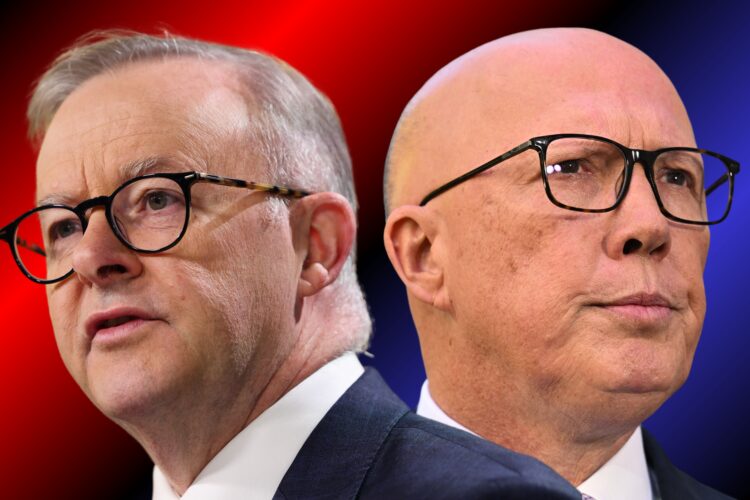Peter Dutton:
Well, I think it’s an incredibly important question, and it’s important because parents have a choice to make, and whether that’s for the public system or for the private system, we have supported both, and we support increased funding going into this election as well, and there’s a position which is identical between the two parties in relation to funding for public schools and for private schools as well.
I think it is important that parents are able to have that choice, and that we can fund the infrastructure, and that we can support teacher development and make sure that we’ve got an education system which is fit for purpose. We live in an incredibly competitive environment, and we need to make sure that the outcomes in our schools are meeting the standards and expectations of students and parents and teachers and educators more generally. And that requires money. It requires commitment. And I thank you very much for the great work you do.
Anthony Albanese:
I admire anyone who’s a public school teacher, you do incredible work. And one of the things we’ve had to deal with is the last time government changed in Australia in 2013 in the 2014 budget, $30 billion was ripped out of public schools. In that budget, $50 billion was ripped out of hospitals, and we’ve had to deal with that for a long time. You’d be aware way back now, more than a decade ago, there was the gods key reforms, which were about giving, put simply, every child, to get free, fair funding so they if they fall behind, they can get that assistance. Now we’ve delivered that in a deal negotiated with every single state and territory in the country, $14.6 billion of additional dollars so that every student, whether they’re going to a public school or a private school, can get the funding that they deserve. And that includes the deal so that they get proper, proper support.
So if a child falls behind, at the moment, NAPLAN is a bit too late. We want to do testing in year one, so if a child falls behind, they can get that specialist, one on one, tutoring or small group to make sure that they don’t fall behind, because if you address that really early, then every child can have the opportunity to fulfill their aspirations.
Dutton is not happy:
Kieran, I just want to follow up, yes, sure, if I could just very quickly. The fact is that there were no cuts. The Prime Minister goes out with this Medicare campaign and education scare campaign. It is not a truthful statement. Now what the Prime Minister is saying is that the funding didn’t go up by as much as he would want each year, but there was no year where funding was cut from hospitals or from education. When I was health minister, we increased hospital funding by 16% now the prime minister might say it should have gone up by more. That’s fine for him to say that, but to say that the funding was cut, and you can go and have a look at the Budget papers. That is not a factually correct statement. It’s misleading. It’s designed to scare people, and I think it’s dishonest from a man who wants to be re elected as the prime minister of our country.
Albanese isn’t backing away:
Well, Kieran, it is a fact. It is in the 2014 Budget papers, there’s line items really explicitly, $50 billion savings in health, $30 billion savings in education go down each year, Prime Minister or not, $30 billion from the funding that was in the budget before the change of government occurred
